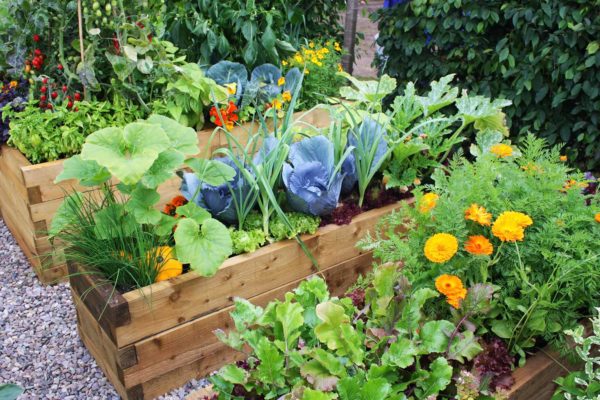It’s been two months since we settled on the new house, and it’s gone by so fast!
Over the last few weekends we’ve been working on the gardens – the plan is to do the landscaping ourselves to save some money. Dave and I have spent many weekends cutting down what felt like a thousand clumps of golden cane palm trees that had overrun the yard and blocked the light. We’re slowly making progress. I can’t wait to get to the fun part of planning and planting.
We’ve found a builder and building designer to help us bring our dream home to life – and we have designs! You can see a sneak peek here.
Now, we’re almost at the stage of starting the renovation, and I’m researching sustainable suppliers.
Image via Cosentino
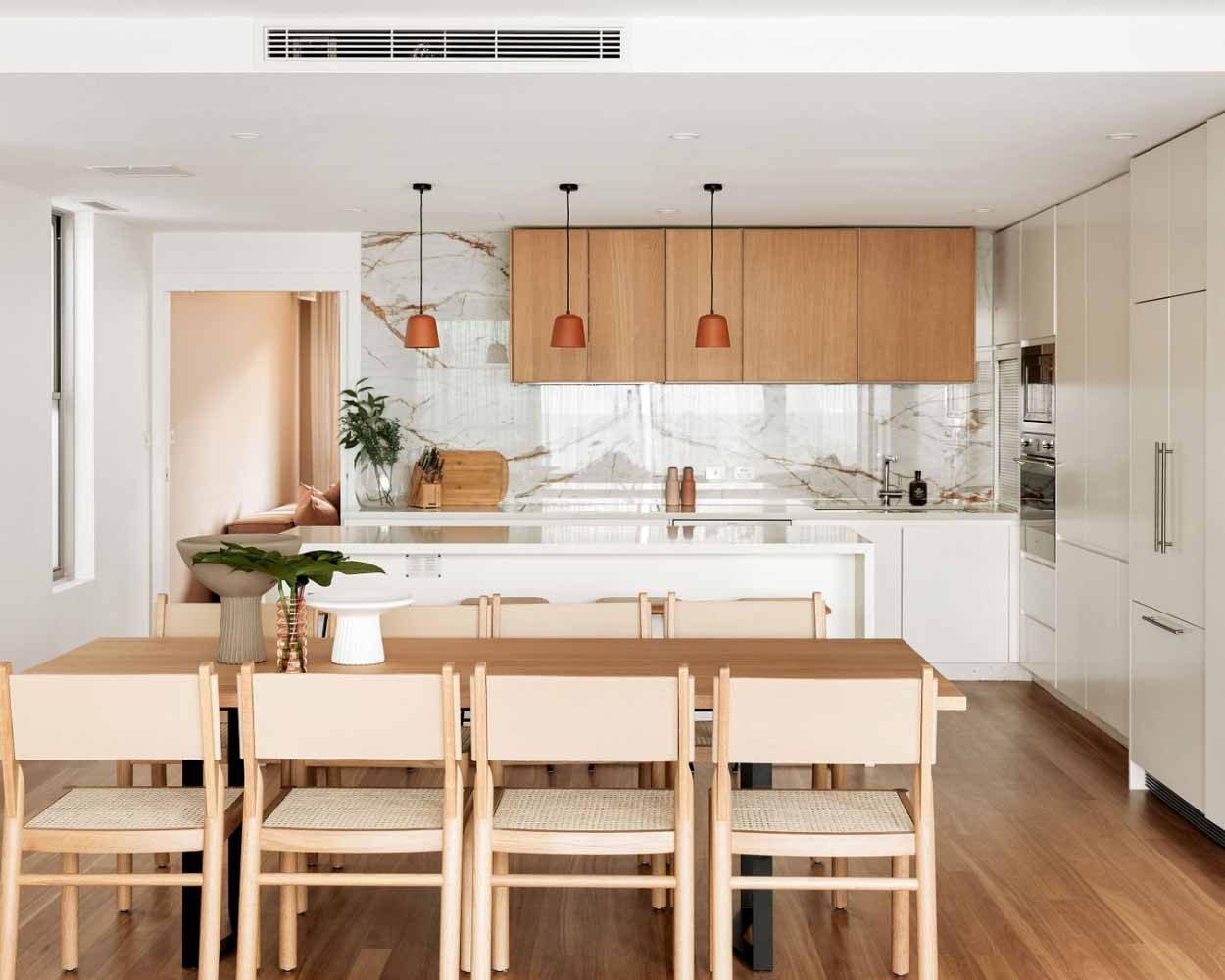
Navigating a renovation is already a rollercoaster ride, but when you’re committed to making it sustainable – the stakes are a little higher. The joy (and overwhelm) is in the details, but fortunately, I’ve found some pretty great products backed up by GreenTag Certification.
What exactly is the Global GreenTag Certification?
Global GreenTag Certification is a certification program that assesses the environmental, ethical, and health impacts of products and brands. It dives deep into the lifecycle of a product, evaluating everything from ethical sourcing to end-of-life disposal.
Using independent testing, they look at resource use, emissions, waste management, and social responsibility to determine the sustainability of products and their manufacturers. It’s also recognised by the Green Building Council Australia, an independent body for sustainable building practices.
As a guide for people who are knee-deep in building decisions and also looking for sustainable products, this is golden.
The range of GreenTag-certified products is impressive, covering everything from building materials like timber and concrete to furnishings and even cleaning products.
Sustainable Suppliers
The easiest and cheapest thing to do would be to order everything from one of the big building suppliers and not give it a second thought. Instead, I’ve been deep in research, hoping to find suppliers that balance sustainability with our time constraints and budget. I hope my research helps make it a little easier for anyone looking to renovate a little more sustainably.
The style we’re going for is modern coastal, and while we’ll be incorporating some second-hand and recycled elements, the rustic look isn’t exactly in line with that. Being able to source new materials with that modern style that meets our values feels like a good compromise.
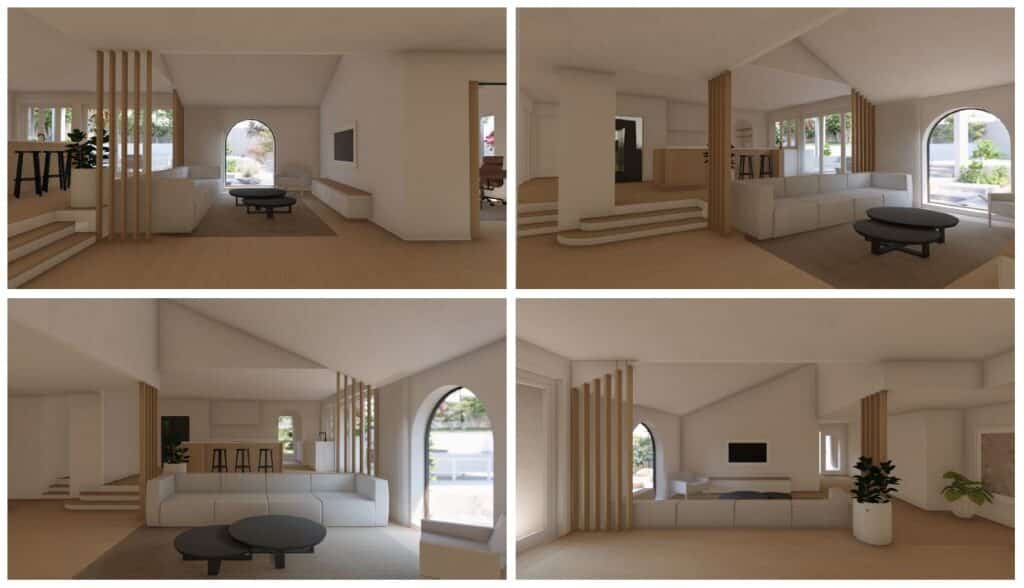
The kitchen and living room by Luke Holmes Design
The fact is everything we consume has an impact and a footprint.
So, after looking at the environmental impact of the products we’re sourcing, the priority is investing in good quality, well-made fittings and fixtures designed to last.
Focusing on the first stage of the renovation, the kitchen and living room, we’ve found a few suppliers we’re keen to use. Last week, we visited the brands with local showrooms to choose colours and ensure the quality is as good in person. So far, we’ve cemented tiles, benchtops, and cabinetry.
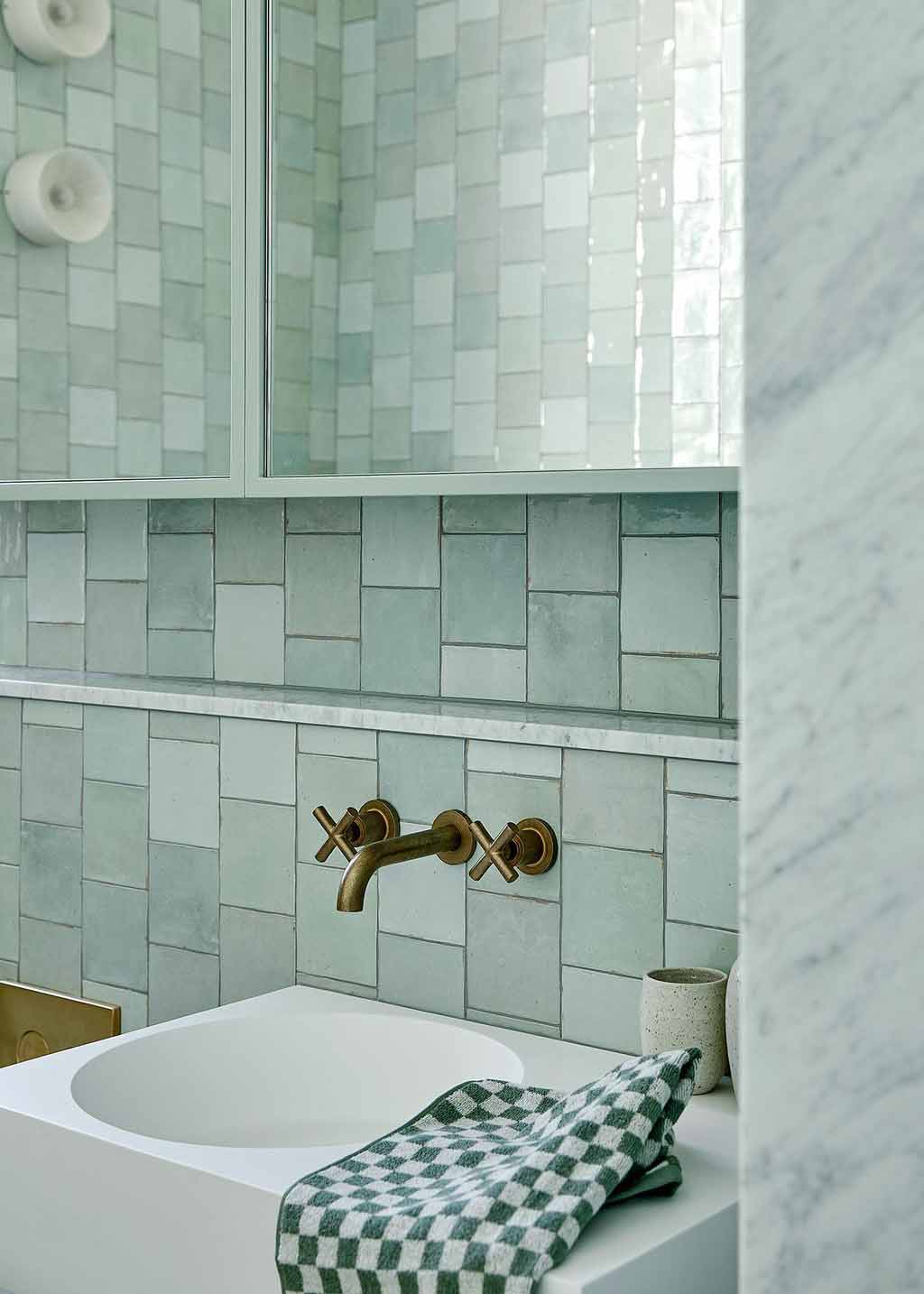
Tiles – Earp Bros
Earp Bros should be on your radar if you’re looking for high-quality and beautiful tiles.
This family-owned and operated Australian brand has been in business since 1883 and offers an extensive range of tiles, from simple ceramics to stunning artisan handcrafted mosaics from Morocco. They also provide a range of natural stone and breeze blocks.
Some of their sustainable practices:
- They are Australia’s first GreenTag Certified tile supplier
- They work closely with their suppliers to ensure safe and fair working conditions for the makers
- The adhesives used in the tiles are VOC (Volatile Organic Compound) free
- They have developed a Product Stewardship Program that enables the tiles, at the end of their life, to be 100% recycled
You can delve more into their sustainability efforts and supply chain here.
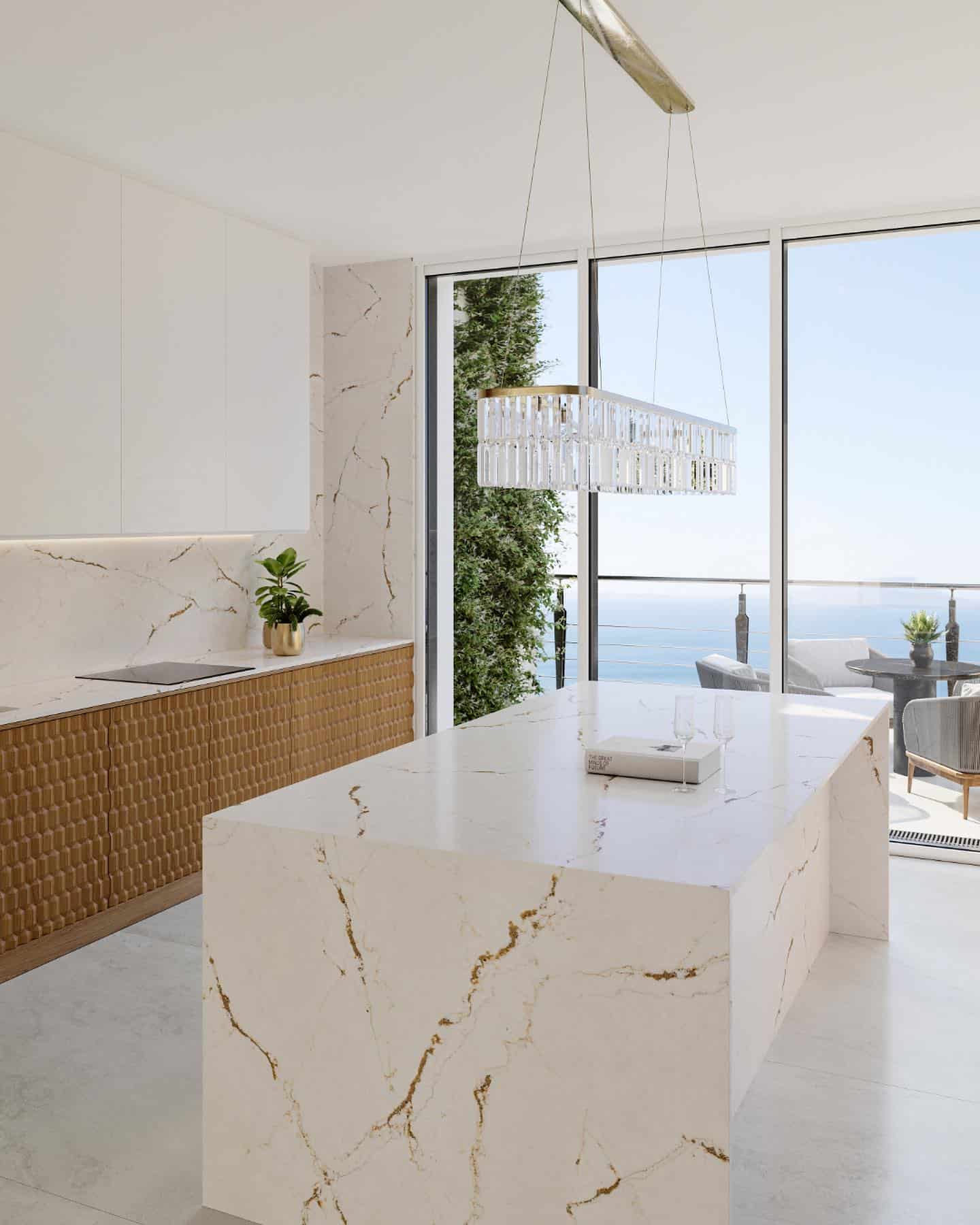
Benchtops – Cosentino
Cosentino is one of the world’s largest stone benchtop manufacturers. We’ve been looking specifically at the Silestone range, made from a mix of quartz and recycled glass bottles, using their HybriQ technology to reduce silica content.
Aesthetics aside – because they are seriously beautiful – one of the most appealing features of Silestone is its durability and 25-year warranty. We will have this home for the next 40 years, so we want these benches to last.
Silestone is on the higher end price-wise, but their more affordable Dekton range is a carbon-neutral product for its entire life cycle.
Some more of their sustainable practices:
- They are working on policy changes in Australia to make the industry safer for workers during fabrication
- Made with 99% recycled water and 100% electric energy from renewable sources
- Almost a third of the company’s production is made from recycled or recovered materials
You can read more about their sustainability efforts here.
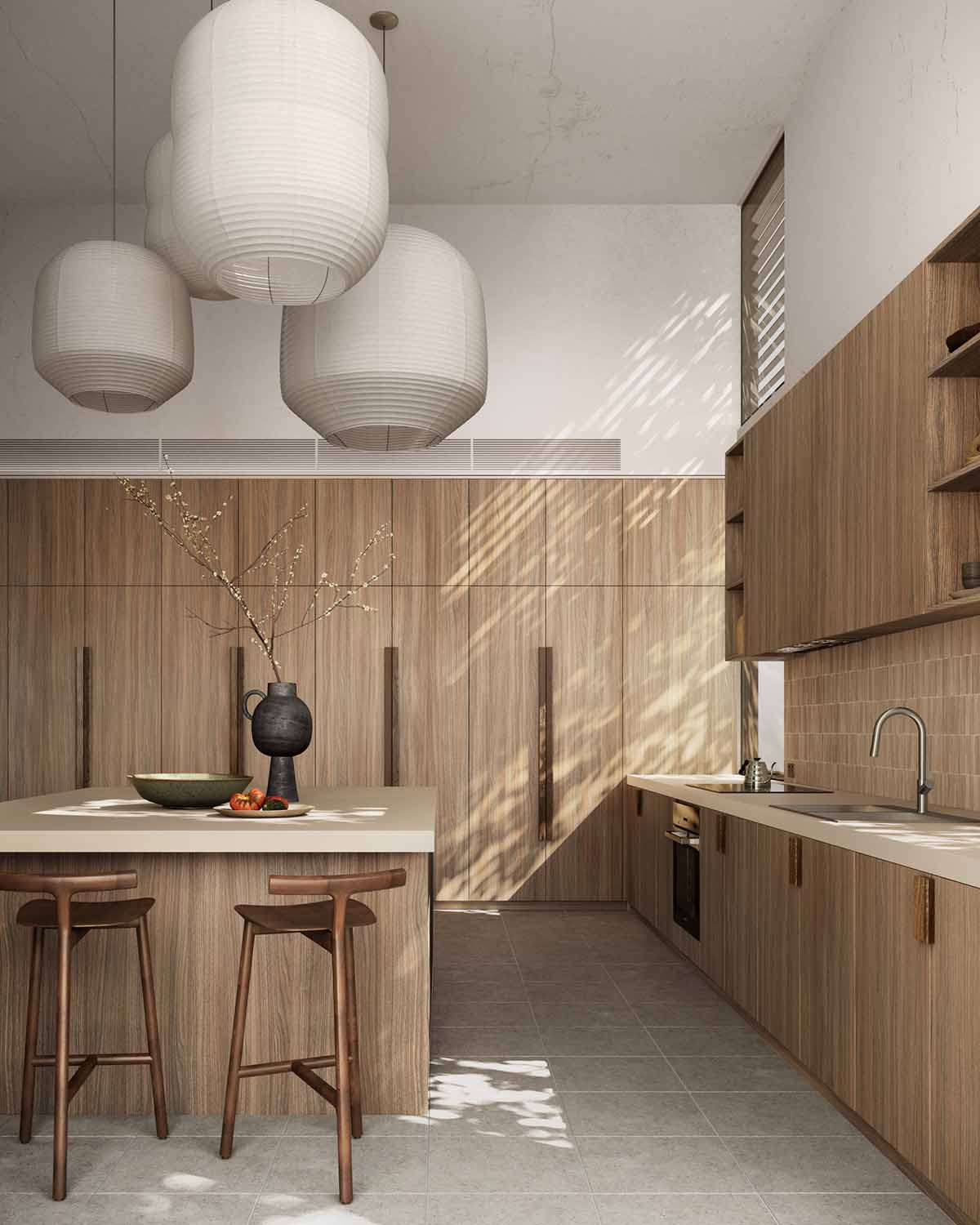
Cabinetry – Laminex
Laminex began life in a tin shed in Melbourne in 1934 and, to this day, still manufacture in Australia. We’ve found them to be a more cost-effective solution for the kitchen cabinetry vs. custom-made joinery, even with recycled timber.
They are one of Australia’s biggest makers of wood and paper products but source their timber from traceable FSC (Forest Stewardship Council) Certified plantations.
Some more of their sustainable practices:
- They’re implementing recycling and reusing programs to reduce water usage and wood waste during production
- They focus on durability and longevity, providing care tips to make sure your laminate products stand the test of time
- They offer low-emission and low-VOC options
You can read more about their sustainability commitments here.
If you’re at the same stage as we are with sourcing suppliers for your renovation or build and feeling as lost as we were, this is a great place to start. Next up, I’ll be tackling double-glazed windows and insulation. I’d recommend subscribing to the newsletter if you want to be notified when these posts are published.

